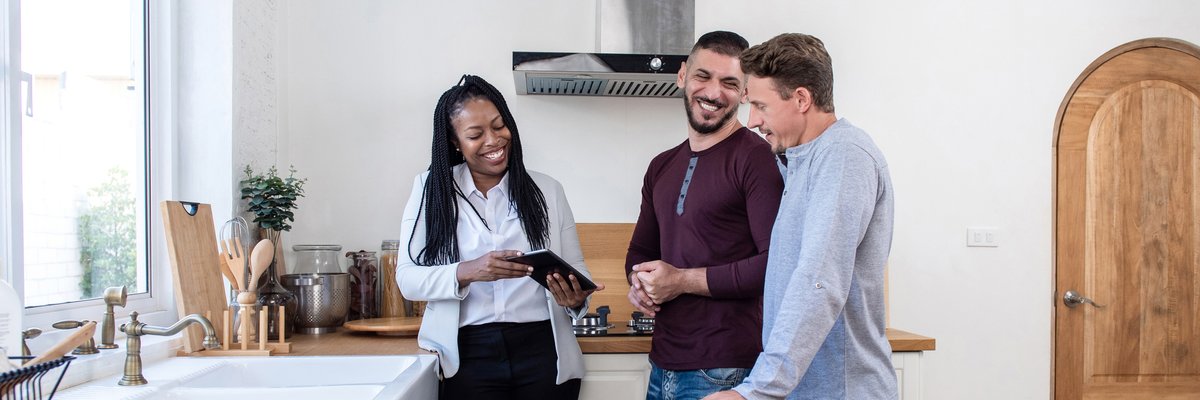Waiting to Buy a Home Until Prices Come Down? 2 Reasons You Could be Waiting Longer Than You Think
KEY POINTS
- Home prices are still up, and if you're ready to buy, you might want to go for it if you can afford higher payments.
- Buyers are getting used to rates over 6%.
- Even if rates fall and more homes hit the market, more buyers are likely to jump in, which won't solve the price problem.
A house is likely to be the most expensive purchase you'll ever make, and consequently, buying one should come with serious forethought and consideration of all the costs involved. Unfortunately, today's market is only serving to make buying a home both more expensive and also more stressful.
If you're in an affordable rental situation that is working for you, or you're just hoping to upgrade from a home that's comfortable but a tad too small, you might be waiting out the market for prices to come down. (As reported by Redfin, prices are up 2.6% from July 2022.) But according to market analysis from Redfin, you could be in for a long wait. Here's why.
1. Buyers are getting used to higher rates
It's fair to say that most people are not able to buy a house outright in cash, and so must rely on a mortgage loan to finance their purchase over time, generally 15 or 30 years. When you're going to be paying interest on a purchase for that long, it's vital to get the lowest rate possible to save money. But gone are the pandemic days of mortgage rates in the 3% range. Rates started climbing at the end of 2021, and while we've seen the occasional dip here and there, they've remained over 6% since fall 2022.
As of this writing, Freddie Mac has the average rate for a 30-year fixed mortgage at 6.81%. This represents a big additional cost on top of whatever price you're paying for a home, and you can see the impact by plugging numbers into Motley Fool Money's mortgage calculator. For example, financing a $250,000 home with a 10% down payment at a 3% interest rate will have you paying $1,094 per month for principal and interest. Bump that rate to the current average, and you're paying $1,615 per month. And these calculations don't include homeowners insurance or property taxes. Ouch.
But interestingly, Redfin reports that buyers are getting used to the higher rates, and the higher cost of a mortgage loan hasn't proved to be a serious deterrent for those who can afford it.
2. There just aren't enough homes for sale -- and if rates fall, this likely won't change
As if the higher rates weren't enough of an issue for home affordability, we're continuing to struggle with inventory. And there's a good reason for this: Current homeowners don't want to give up those lower rates they snagged a few years ago by selling their homes. So less inventory on the market coupled with determined buyers who aren't put off by those higher rates means sellers are still getting multiple offers on their homes.
You might think that if mortgage rates start to come down, this problem could ease as sellers who were staying put list their homes. Unfortunately, Redfin notes that lower rates and more homes for sale could mean an uptick in wannabe buyers, meaning prices could jump and you'll still have the same problem of competition for not enough homes that cost more than you want to spend.
What should you do?
All in all, it's still not a great market for buyers, and we're likely going to be waiting a while for things to change in any significant way. In the meantime, if you are ready to buy and just waiting to see if prices will come down, you might want to grit your teeth and prepare to buy anyway. You can increase your odds of at least saving money on a mortgage (if not the home itself) by:
- Improving your credit score: Pay down debt, make it a point to make all your payments on time, and pick through your credit report for errors you can have corrected.
- Saving money for a down payment: The better the down payment you can offer, the more likely you are to get a decent rate, as lenders will consider you less likely to default on a mortgage loan if you have a chunk of money tied up in a home.
- Shop around: Start with our list of the best mortgage lenders and get pre-approved to see what you can qualify for.
If buying a home is a part of your personal American dream, doing so sooner rather than later might be worth it to you, even if you end up paying a higher price for a home. Just ensure that a home purchase is the right move for your finances, and remember to account for all the costs involved in owning a home when you create your new budget.
Our Research Expert
We're firm believers in the Golden Rule, which is why editorial opinions are ours alone and have not been previously reviewed, approved, or endorsed by included advertisers. Motley Fool Money does not cover all offers on the market. Motley Fool Money is 100% owned and operated by The Motley Fool. Our knowledgeable team of personal finance editors and analysts are employed by The Motley Fool and held to the same set of publishing standards and editorial integrity while maintaining professional separation from the analysts and editors on other Motley Fool brands. Terms may apply to offers listed on this page.



